- Home /
- Academy /
- Content & SEO Processes /
- Mastering SEO: Tips for Avoiding Duplicate Content
Mastering SEO: Tips for Avoiding Duplicate Content

Duplicate content is content that appears in more than one location online. We mean a page with a unique URL when we say "place." It could be the same or nearly the same content, and it could be on the same or a different website.
Although Google will not penalize you for duplicate content, it can harm your search engine ranking. This is because it is difficult for search engines to determine which location of the content is the most relevant. As a result, the URLs rank low, and no single page receives the maximum search visibility.
Google is supposed to detect duplicate content, group all URLs into a single cluster, and then select the best result. However, this does not always work correctly, and the incorrect URL may be selected. Finally, website owners may experience lower rankings or traffic due to duplicate content. Fortunately, there are ways to keep this from happening to your websites. In this guide, I'll delve deeper into the causes of duplicate content, the best ways to avoid it, and how to prevent competitors from copying your content and claiming to be the original creator.
What is Duplicate Content?
In content marketing, duplicate content is content that is an exact copy of another piece of content. Alternatively, duplicate content can refer to nearly identical content (such as swapping a brand name or location name).
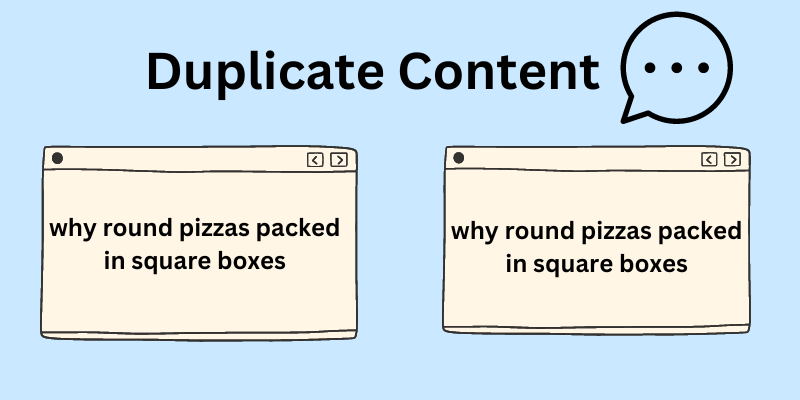
Simply changing a few words will not prevent a page from being flagged as duplicated content. As a result, your organic search performance may suffer.
This type of content also includes content that appears on multiple web pages on your site or two or more separate sites. However, many technical fixes can be used to prevent or reduce the impact of duplicate content.
How does Duplicate Content impact SEO?
Duplicate content has several consequences for search engines and site owners:
- Search engines have no idea which URLs to include or exclude from indexes.
- Search engines are unsure whether link metrics (authority, trust, and so on) should be directed to a single page or multiple pages.
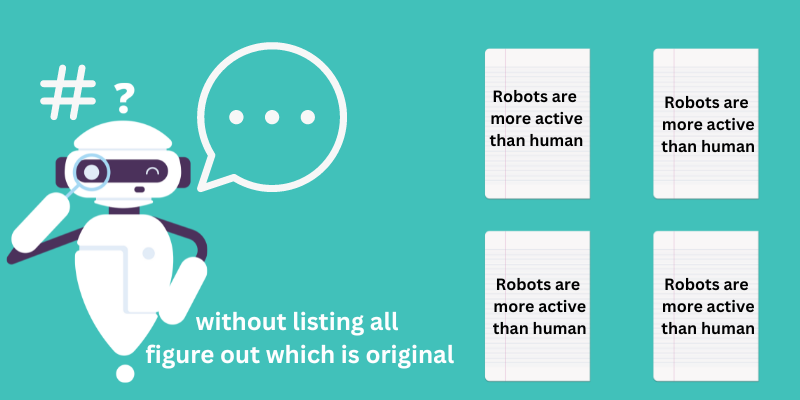
It's unclear which URL will rank in SERPs (search engine results pages), and the undesirable URL can sometimes outrank the legitimate one. Because other sites that want to include a backlink to the content must choose between the multiple URLs, link equity (the authority and value that one page passes to another) is diluted. Instead of focusing on just one page, the link equity is distributed across the duplicates.
Even if all of your URLs point to your website, if one of them has link attributes that make it appear unfriendly to users, and Google ranks that version of the URL instead of the original, people may not want to click it. However, if Google ranks the second one because it believes it is the primary version of the duplicate content, people will not click on it because it appears intimidating and untrustworthy.
When you have duplicate content, your website's crawl "budget" is depleted. Google crawls websites to find new content, and it also re-crawls sites regularly to see if anything has changed. If you have duplicate content on your site, it will take longer to crawl all of the pages thoroughly. As a result, Google may take longer to index and re-index pages and display them.
How to get a Duplicate Content penalty?
Duplicate content can harm your SEO performance, but it will not result in a Google penalty if you did not intentionally copy someone else's website. You don't have to worry about getting a Google penalty if you're an honest website owner with some technical website challenges who isn't trying to trick Google. If you've copied a lot of other people's content, you're treading on thin ice.
Duplicate content on a site is not grounds for action unless it appears that the duplicate content intends to deceive and manipulate search engine results. If your site has duplicate content problems and you don't follow the advice above, we do a good job of selecting a version of the content to show in our search results.
What is the most common fix for duplicate content?
In many cases, the best way to resolve duplicate content is to implement 301 redirects from non-preferred URL versions to preferred URL versions.
When URLs must be accessible to visitors, you cannot use redirect; instead, you must use a canonical URL or a robot's index redirected. The robot's noindex directive does not allow you to consolidate some signals, whereas the canonical URL does. Choose your weapon to combat duplicate content with caution, as each has advantages and disadvantages. When it comes to duplicate content, there is no "one size fits all" solution. Explore the section below to learn about the various causes of duplicate content.
What are the common causes of duplicate content?
Duplicate content is frequently caused by an incorrectly configured web server or website. These are technical occurrences that are unlikely to result in a Google penalty. They can, however, seriously harm your rankings, so fixing them should be a top priority.
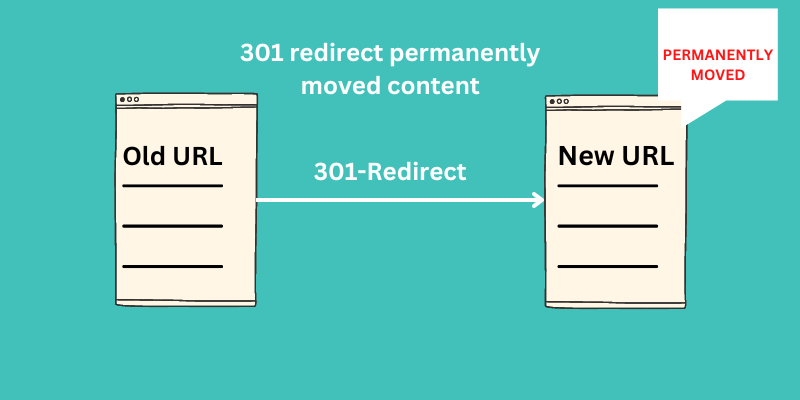
However, in addition to technical causes, there are also human-driven causes: content that is purposefully copied and published elsewhere. As previously stated, these can result in penalties if done maliciously.
What if my content has been copied against my will?
What should you do if your content has been copied and you haven't used a canonical tag to indicate that it is the original? Use the Search Console to see how frequently your site is indexed. Contact the webmaster of the site that copied your content and request accreditation or removal.
To ensure that your content is recognized as the 'true source of the information, use self-referencing canonical tags on all new content created.
Conclusion
Finding a small amount of duplicate content is usually not cause for concern. However, technical issues affecting hundreds or thousands of pages must be addressed. It also doesn't hurt to get rid of any duplicate content issues.
That's all part of maintaining a clean, high-performance website. After all, the last thing you want to do is compete with yourself and ruin your ranking due to content over which you have complete control.
Once you've identified duplicate content, you might want to read our article on how to deal with keyword cannibalization to avoid duplicate keyword issues.
Start using PagesMeter now!
With PagesMeter, you have everything you need for better website speed monitoring, all in one place.
- Free Sign Up
- No credit card required
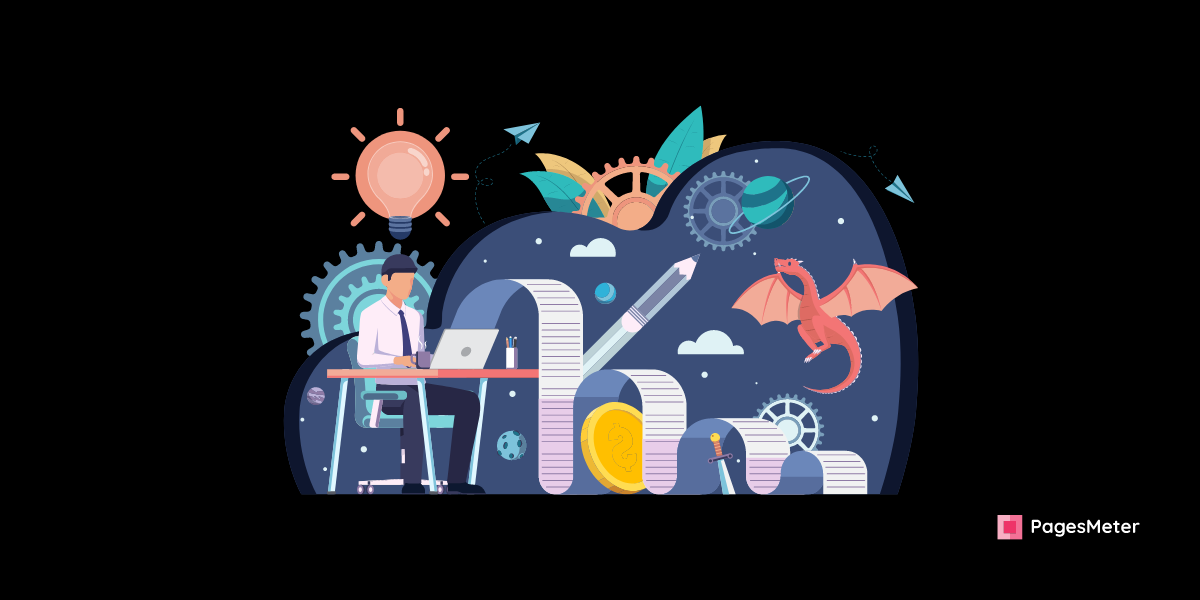
Content optimization refers to updating your content (text, images, links, code, and other elements) to help search engine algorithms rank your web pages higher.
Rank tracking is the practice of monitoring the rankings that your sites hold in search results for the search terms that interest you. A program that does rank tracking is called a rank tracker.
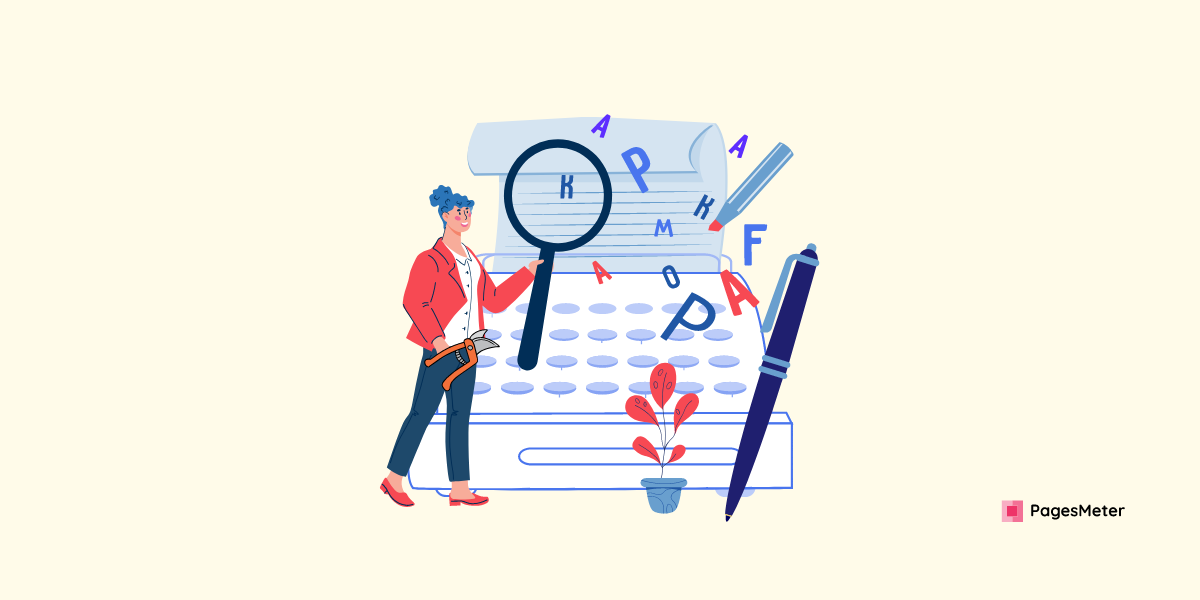
Content pruning is the process of taking out the content from the website that has very less value to the business or its clients.
Uncover your website’s SEO potential.
PagesMeter is a single tool that offers everything you need to monitor your website's speed.